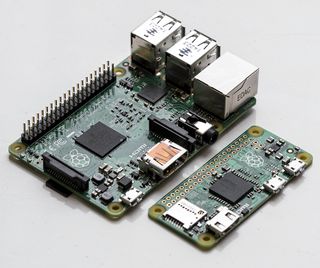
Despite complicated passwords and other security measures, PCs can still be vulnerable to hacking, even from a small device that costs under 5.
The so-called PoisonTap, developed by privacy and security researcher Samy Kamkar, is made out of a Rasperry Pi Zero microcomputer, which costs 4, and a common USB cable. When plugged into a computer, it can steal login details to websites in less than a minute.
The device hijacks the computer's internet traffic by giving it an IP address, easily stealing the users' login details for websites like Facebook or Gmail.
It prompts the computer to send requests from the web browser to websites to steel its cookies, which often contain login details of the person or people who generally use the browser.
These details are then sent to the hacker through the PoisonTap, allowing them to access users' personal accounts.
After it has been unplugged, the PoisonTap still maintains backdoor and remote access to the computer.
It works on locked computers as well, if the user happens to have left web browsers open. This can be detrimental in work places, where employees might have left their computer unattended to participate in a meeting or take a break.
Get the ITPro. daily newsletter
Receive our latest news, industry updates, featured resources and more. Sign up today to receive our FREE report on AI cyber crime & security - newly updated for 2024.
The device is ideal for such circumstances, as it needs under a minute to work (usually around 30 seconds), and can carry out the whole process without unlocking the PC.
Security analyst Graham Cluley told IT Pro: "I'm not sure this is a huge threat to the typical computer user, but that if an attacker gets physical access to your turned-on PC then we often find that all bets are off."
In a post presenting the device, its creator, Kamkar, said: "Closing your browser every time you walk away from your machine can work, but is entirely impractical."
Instead, he suggests using HTTPS exclusively, at least for authentication and authenticated content, as well as ensuring the Secure flag is enabled on cookies, and using HSTS to prevent HTTPS downgrade attacks.
Finally, he also provides some Desktop Security advice, such as adding cement to USB and Thunderbolt ports or disabling them entirely.
ITPro is a global business technology website providing the latest news, analysis, and business insight for IT decision-makers. Whether it's cyber security, cloud computing, IT infrastructure, or business strategy, we aim to equip leaders with the data they need to make informed IT investments.
For regular updates delivered to your inbox and social feeds, be sure to sign up to our daily newsletter and follow on us LinkedIn and Twitter.





